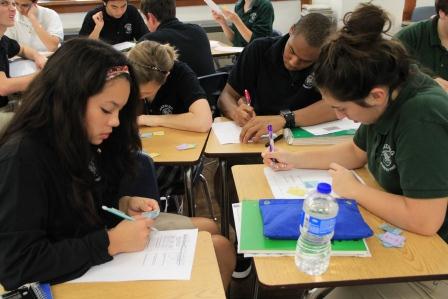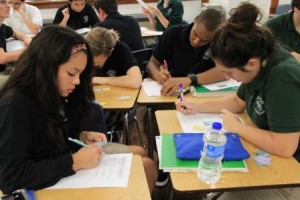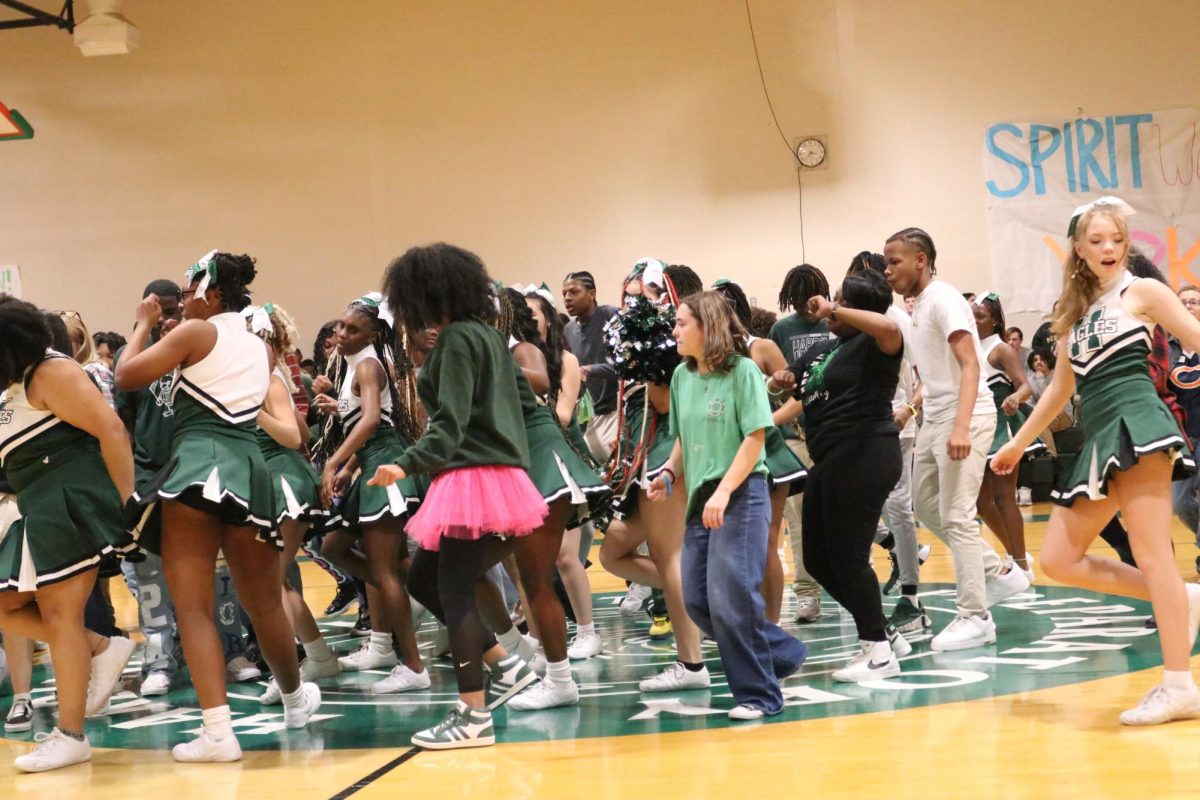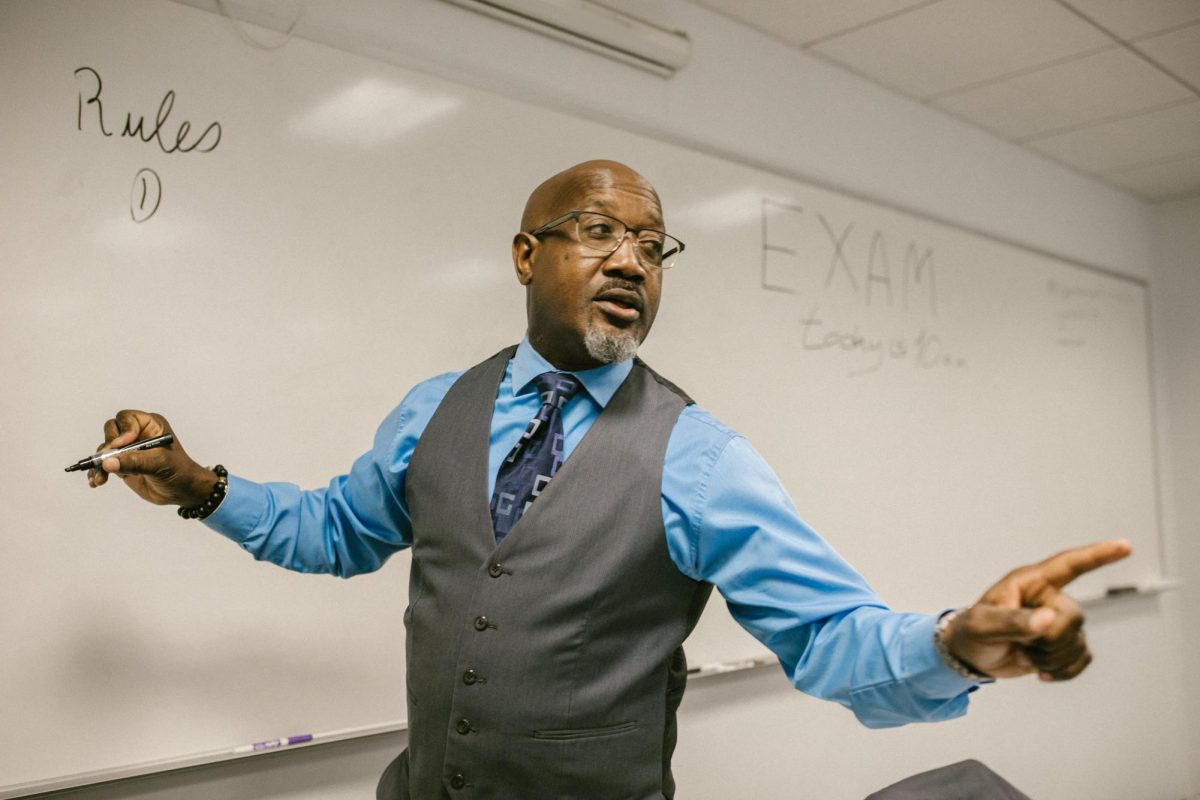
The term “college prep” can mean different things to different students. Some embrace a more advanced curriculum for its potential for current and future educational benefits, while others sigh at the massive workload. The perspectives of the teachers and administration, however, are often ignored by students whose minds are largely focused on keeping up with homework and the daily dramas of teenage life. It is important to keep the viewpoints of teachers in mind, as their opinions on college preparatory curriculum are reflected in the ways that they teach, give assignments and interact with their students.
English teacher Elizabeth McCurley is responsible for introducing freshmen to the rigors of a college prep English curriculum, especially in regards to literature and writing. To her, the term “college prep” refers to the creation of a well-rounded student who is prepared for all parts of higher education.
“[College prep means] being prepared for every aspect of college, not just the workload you’ll have, or the classes you’ll have, and the knowledge you’ll need to get there, but also how to handle yourself as a young adult and how to stand on your own two feet without parents backing you up,” McCurley said.
McCurley said that Harding gives students an accurate representation of what their freshman year of college will be like, though there is an aspect of the curriculum that she thought needed work.
“We put a lot of emphasis on homework, when in reality college is not all about homework,” McCurley said. “I think students rely too much on a daily grade or a quiz grade to save themselves versus focusing and putting their energy onto the big projects that truly do show them where their skill level is.”
McCurley said that overall, Harding students are prepared for the rigor of college classes.
European History teacher Jason Satwalekar teaches the first AP class that students have at Harding. He said the school does a good job of educating students about what skills will be necessary in college, especially since they use many of the same skills in preparing for AP tests. In addition, he said that communication with Harding alumni who currently attend college helps to keep the school informed about meeting college requirements.
To Satwalekar, college prep means, “material and work that are going to truly prepare you for what life in college is going to be like.”
Satwalekar said Harding students will be prepared for college classes as long as they do the work. While teachers have some responsibility in providing students with a good education, it is also important for the students to be motivated to learn.
“We can’t give students an education, we can give them the opportunity to get an education,” Satwalekar said. “We’ve got to do our part, and they’ve got to do their part, too.”
AP Calculus and Pre-Calculus teacher Angie Ellis said that a college preparatory curriculum is important because it “[gives] kids a chance to be successful in college,” and, “the right tools so that they’re capable of success.”
Ellis’s views are similar to Satwalekar’s in that she sees AP classes as an important tool in preparing students for college. She said that starting AP classes sophomore year helps to get students into the right mindset for pursuit of higher education.
“Most high schools wait until you’re a senior to prepare you for college whereas I think this high school does a really good job of starting you as a freshman, saying ‘this is what you should be expecting and it’s going to keep getting more challenging,’” Ellis said.
These challenges are often quite significant; Pre-AP and AP Chemistry teacher Dr. Daniel Schuerch said that the AP Chemistry course he teaches is slightly more difficult than any he took in college because the AP test covers such a large amount of information.
“If students take advantage of [the advanced classes], they will be very well-suited for taking college courses and find them easier than most other students,” Schuerch said.
While teachers are readying students in the classrooms, the administration is constantly looking for ways to improve the school. Assistant principal Mylo Miller said that Harding, as a college prep school, is constantly focused on “a multitude of issues” dealing with changing college requirements, especially since 64% of people who attend Harding will be first-generation college students.
Miller said that Harding does a good job preparing students in the core subject areas, but needs to work on helping students with the financial aspects of college. He also wants students to be more involved in the community.
Miller is working on obtaining his doctorate. His dissertation is focused on “the organizational goals that Harding has, how we are servicing the whole child.” He said that he is “going to research and study how well Harding is preparing primarily our overall student body, but also low income, even minority students.”
Miller said that Harding’s success is based largely on its excellent faculty and high standards. Even though being a student at Harding is often difficult, Miller hopes that people will be grateful for an advanced high school education when they move on to other pursuits in life.
“I hope in the end that students will look back and be thankful, and I know many are.”






